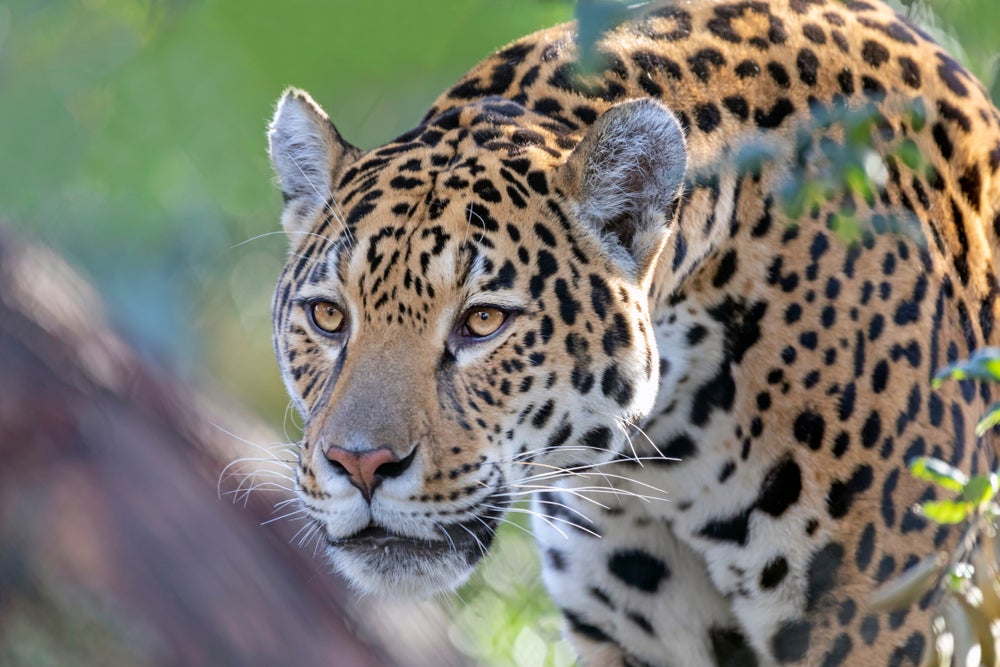
Today is International Jaguar Day, a day designed to raise awareness of the threats facing the big cat, and efforts to conserve them.
To mark the day, the World Wide Fund for Nature (WWF) announced that it has successfully tagged three wild jaguars, helping scientists better understand the behaviour of the species and inform conservation plans.
Jaguars are near threatened, with around 170,000 remaining. The species is very important for the Amazon rainforest’s ecosystem in controlling populations of other animals
Deforestation, which reached an 11-year high over the last 12 months, and the illegal wildlife trade has meant that numbers are dropping, with jaguars now occupying less than half of the land they used to inhabit.
The recent fires in the Amazon rainforest have also had an impact on the jaguar population, thought to have destroyed the habitat of at least five hundred jaguars.
However, according to WWF, jaguars are very elusive, meaning it is difficult to know how many are left in the wild.
How well do you really know your competitors?
Access the most comprehensive Company Profiles on the market, powered by GlobalData. Save hours of research. Gain competitive edge.

Thank you!
Your download email will arrive shortly
Not ready to buy yet? Download a free sample
We are confident about the unique quality of our Company Profiles. However, we want you to make the most beneficial decision for your business, so we offer a free sample that you can download by submitting the below form
By GlobalDataWWF-Brazil, the Instituto Onça-Pintada and Instituto Chico Mendes de Conservação da Biodiversidadehave successfully put collars on three jaguars before releasing them back into the wild on the Amazonian island off the coast of Brazil.
The collars placed on the jaguars, two males and one female, will provide hourly updates on their movements for eight months, giving vital insights on how they interact with their environment.
While they were sedated, health checks were conducted and blood samples taken, to better understand the genetic make-up of this population. WWF camera trap imagery from the area also identified a jaguar population of at least 20, including cubs.
Sarah Hutchison, Head of Latin America Conservation Programmes at WWF-UK said:
“A future for the jaguar is inextricably linked to protecting the Amazon. Our Christmas campaign this year ‘Adopt a Better Future’ highlights the global challenges facing wildlife as a result of deforestation. Our work to improve jaguar conservation benefits not only this precious species, but the landscape in which it lives and ultimately, humanity’s future.”
Read More: Facial recognition successfully identifies individual chimpanzees in the wild.







